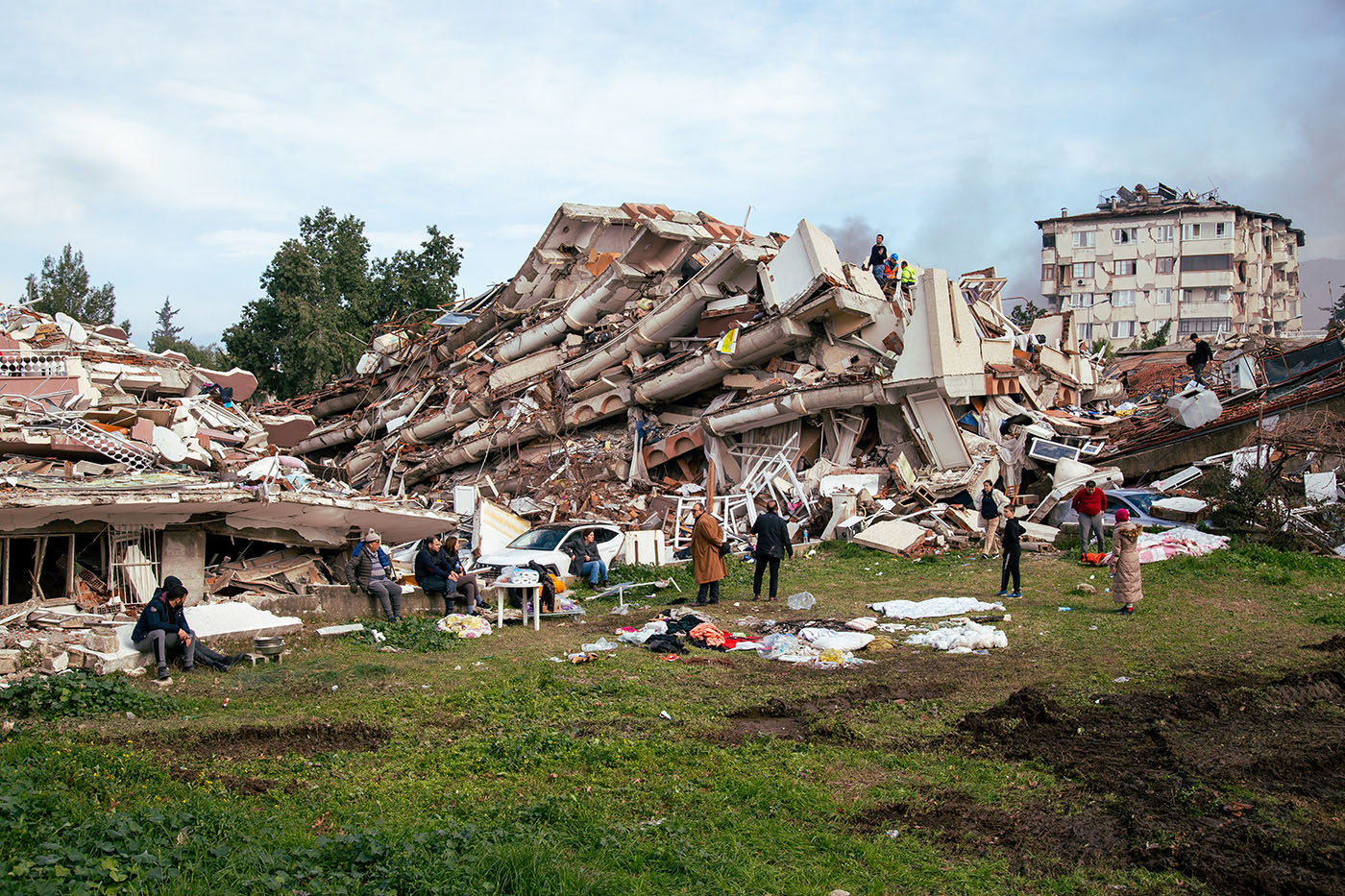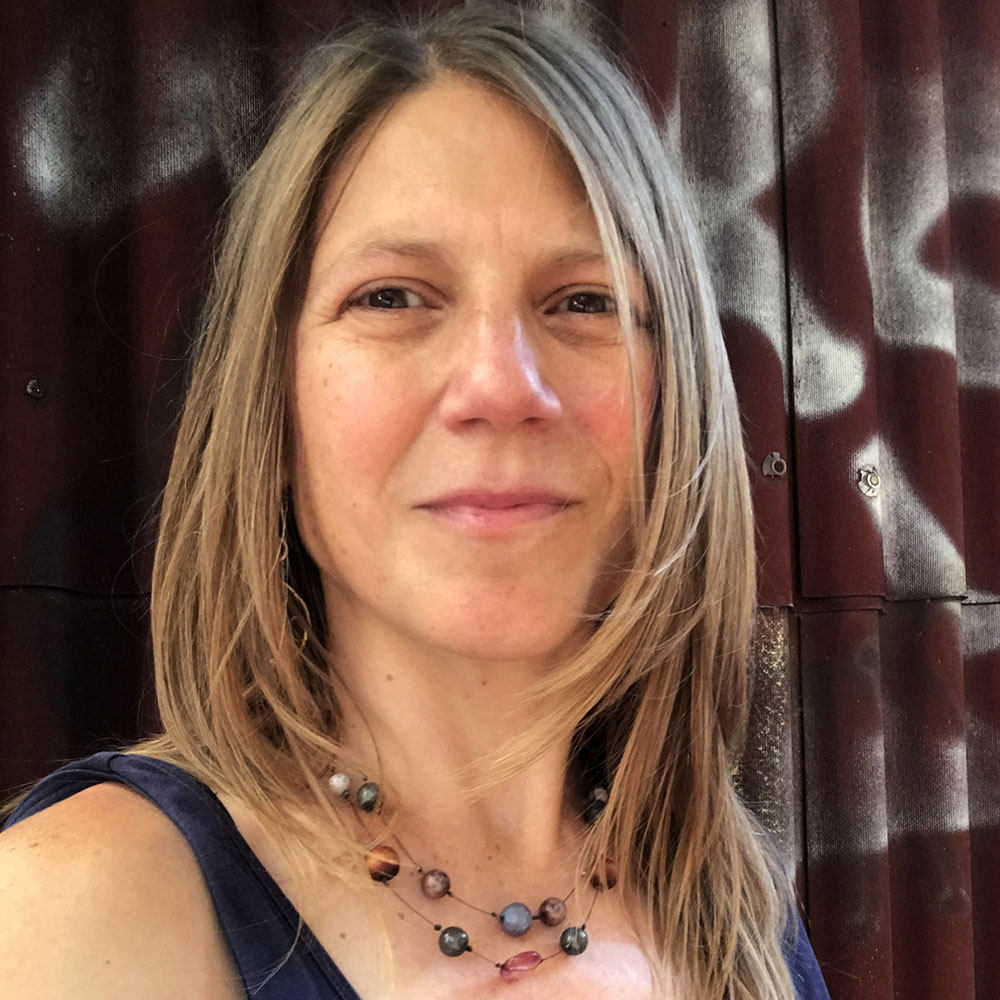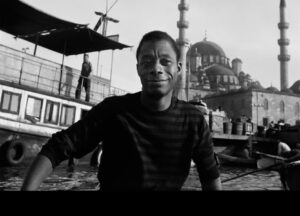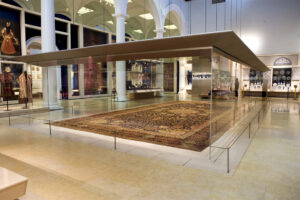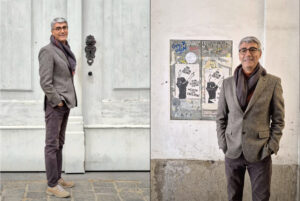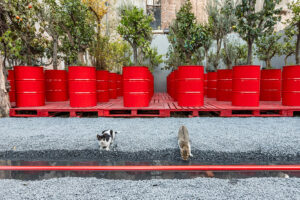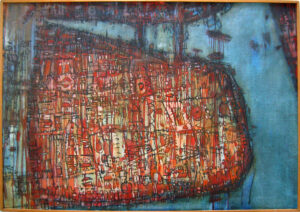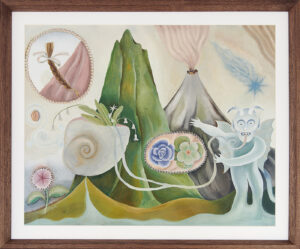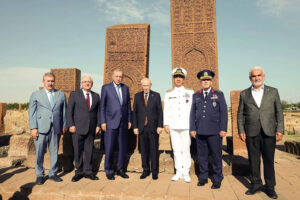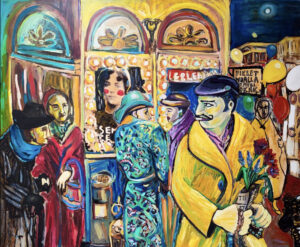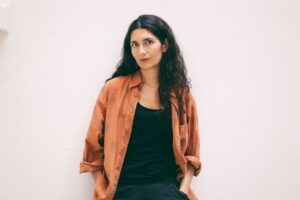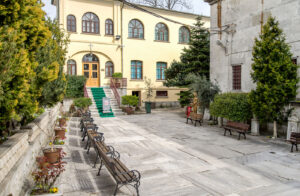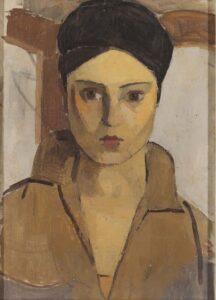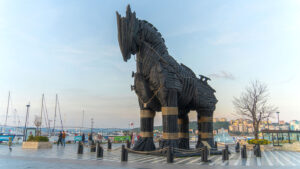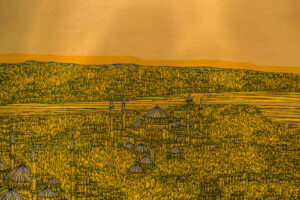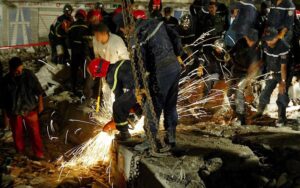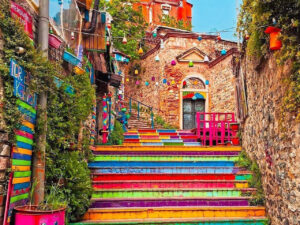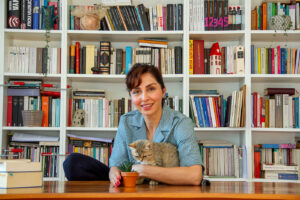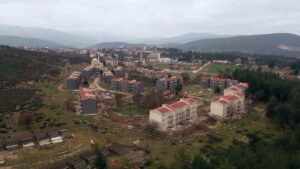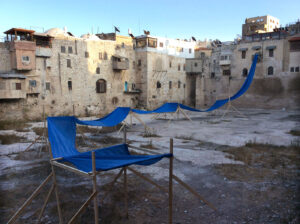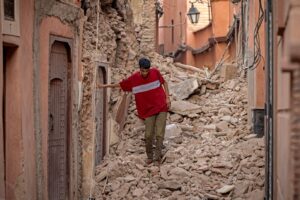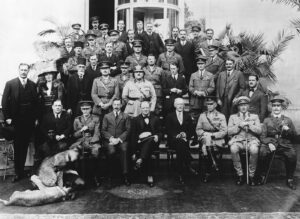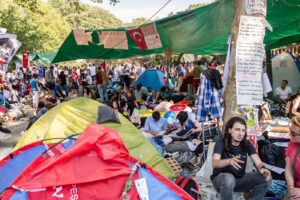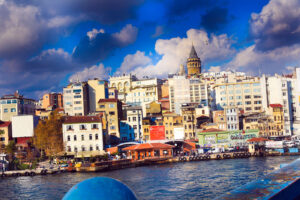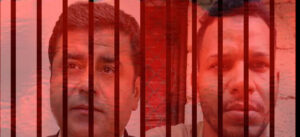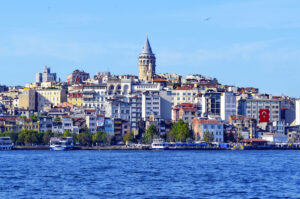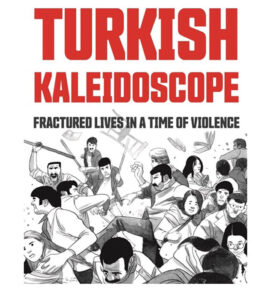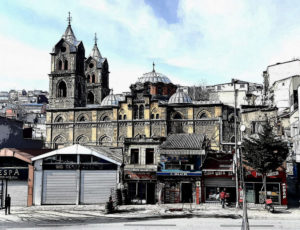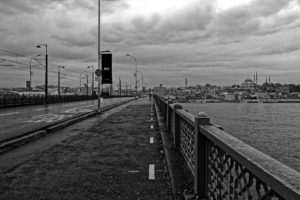Jennifer Hattam
An address. A phone number. A list of names. “Five people.” “My two brothers.” “Mother, father, baby.” “Urgent.” “Please help.” “Please share.”
By the time Istanbul residents woke up on the morning of the 6th of February, their Twitter feeds were filling with posts like these, anguished messages reporting the locations of buildings that had collapsed with people’s family and friends inside.
Overnight, a 7.8 magnitude earthquake had struck Turkey’s southeast, wreaking devastation across 10 provinces and a broad swath of northwestern Syria — an area home to roughly 24 million people in total. The earliest news reports counted at least 76 people dead in Turkey and a similar number in Syria. By early afternoon, the death toll in Turkey alone had increased tenfold, and a second major quake had struck scarcely 50 miles from the first.
Winter had just made a belated appearance in many parts of Turkey; in Istanbul, flights had already been canceled and schools ordered closed in preparation for the inclement weather. Sleet blew down the streets as people rushed to bring blankets and warm clothes to hastily established collection centers for earthquake aid.
The thought of so many left homeless in this biting cold was unbearable — a word that kept coming up, over and over again, in the days that followed, as the country grappled with the sheer scale of the horror and loss. The death toll in Turkey has now passed 42,000 and continues to grow; in Syria, more than 5,800 deaths have been reported. Tens if not hundreds of thousands of homes were destroyed or badly damaged; millions of people are displaced.
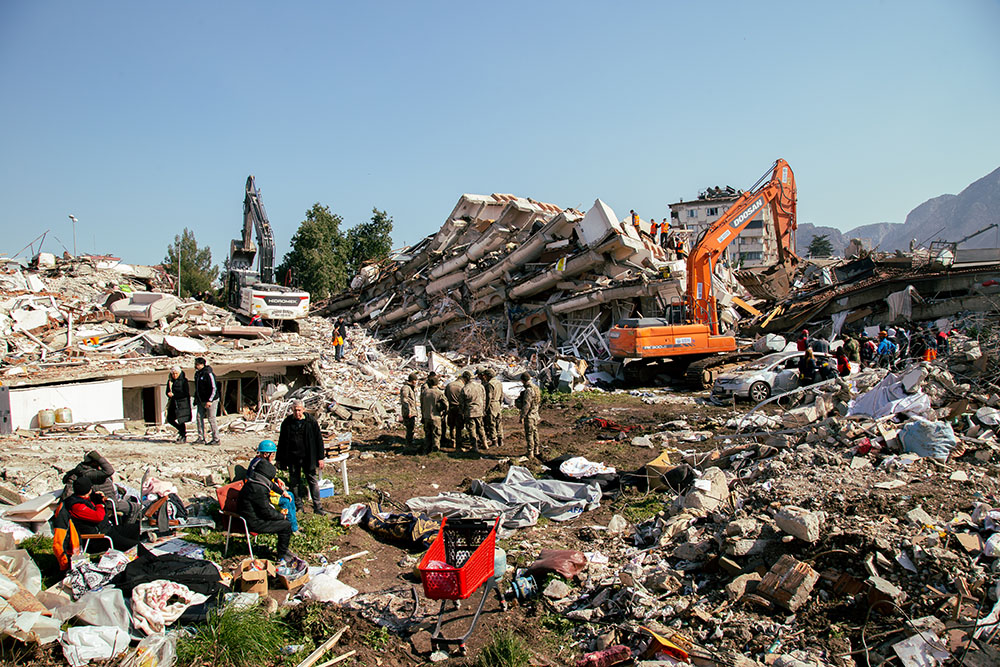
The depth and breadth of the emergency were evident in the wrenching photographs and accounts coming out of the affected region, but also in the “needs lists” shared daily on social media, and broadcast in Istanbul everywhere from ads on the metro and illuminated billboards to pieces of paper taped to doors and walls. Sleeping mats. Tents. Winter boots. Gloves. Milk. Water. Canned food. Power banks. Heaters. Diapers. Batteries. First aid. Pet food. Sanitary pads. Generators. Hand sanitizer. Work gloves. Flashlights. Trash bags. Tea.
“My cousin says they cannot find underwear anywhere — especially for kids,” wrote a colleague of mine with family in the affected region. Others exchanged notes in WhatsApp groups about where to find petrol, or a still-operational grocery store.
Across Istanbul and other cities in Turkey, people rallied to send help to the devastated areas. Municipal offices, restaurants, apartments, galleries, and gyms were converted into collection points and filled with volunteers packing up hand-labeled boxes of donated goods. Film-crew trucks, moving vans, planes, and ferries were loaded up with deliveries of aid purchased by individuals, governments, and companies alike. At one of the Istanbul Metropolitan Municipality’s main collection and distribution points, security guards directed traffic as cars streamed in to drop off supplies. Shopkeepers helped box up donations and carry them out to vehicles, offered discounted prices, or threw in extra goods for free.
This mass mobilization has been carried out amid an ongoing inflation crisis that has sent the cost of meeting daily needs soaring in Turkey since late 2021. The earthquakes have dealt a significant new economic blow, with estimates of the damage ranging from 1% to 10% percent of the country’s GDP, amounting to as much as $84.1 billion in total losses.
Though Istanbul is some 600 miles northwest of the epicenter, the pain of the disaster is felt deeply in Turkey’s largest city, which for decades has drawn people from other parts of the country seeking improved job prospects, better educational opportunities, greater social freedoms, or refuge. Many of the estimated 1 million to 4 million people who left the southeast region during a period of armed conflict between Turkish security forces and Kurdish militants in the 1980s and 1990s settled in western cities such as Istanbul.
This history of internal migration means that everyone seems to know someone in or from the affected region. Every conversation begins with condolences, nearly all public events have been canceled, schools stayed closed for two weeks, and an uncharacteristic hush hangs over typically cacophonous Istanbul. There is sorrow, and fear too. Many Istanbul residents lived through an earthquake that struck nearby in August 1999, killing more than 17,000 people. One colleague who was dispatched to cover this new disaster recalls sleeping in a park for weeks with her family after that earlier one; at least then the weather was warm, she says. Another’s voice shakes with the remembered trauma of what he witnessed in its aftermath.
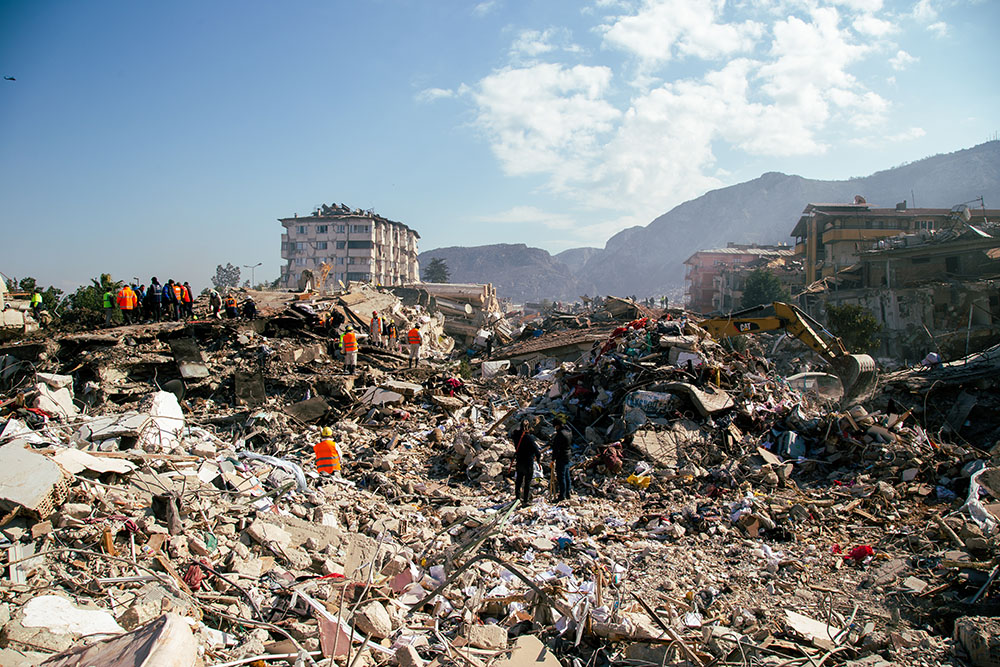
The pain and fear are compounded by anger over what is seen by many as a slow and insufficient government response to this month’s disaster — and a deadly failure to learn from the 1999 tragedy. Stricter building standards enacted following that event often went unenforced, critics say, and violators were frequently offered amnesty for deficient structures in return for paying a fine. Estimates of the number of amnesty-receiving buildings in the southeastern Turkey earthquake zone range from 70,000 to nearly 300,000.
Istanbul Mayor Ekrem İmamoğlu warned this month that 90,000 buildings in the megacity, also earthquake-prone, were at risk of collapse. A 2017 statement by the Istanbul office of the Union of Architects and Engineers of Turkey on the anniversary of the 1999 quake had said that up to 2 million buildings in Istanbul — and 7 million nationwide — were still “far from being safe.”
Photos of pancaked buildings in the southeast fueled anger and concern. “I got out of this building 10 seconds before it collapsed,” a contact of mine in Antakya posted over an image of a home flattened on the 6th of February. “Count to 10, please. WHOSE SHAME IS THIS?”
Sharing such sentiments, while widespread, was not without its own dangers. Legal proceedings have been initiated against nearly 300 people accused of “sharing provocative posts” about the earthquake on social media. One lawyer who lost family in Hatay province was investigated for tweeting “Where is the state?” in the hours following the disaster. Two days after the quake, Twitter itself was briefly restricted, even as people continued to use it to cry out for help. Journalists were investigated for airing criticism of the government response, while other media workers — particularly those employed by Kurdish and leftist outlets — were detained or obstructed while reporting in the earthquake zone.
Amid the rising furor has come speculation about Turkey’s upcoming general and presidential elections, after an ally of President Recep Tayyip Erdoğan called for them to be postponed, citing the need to focus on rebuilding. Officials from Erdoğan’s ruling party have rebuffed that idea, saying the vote will be held before the end of June, as the constitution demands. Postponing it would legally only be possible via an act of parliament, and then only if the country is at war, constitutional experts have pointed out. This explanation prompted some morbid humor about whom Turkey could find to go to war with, given all the countries that had helped out in the earthquake response.
The target of Erdoğan’s saber-rattling less than a month ago, Turkey’s Aegean neighbor Greece was among the first countries to send humanitarian aid and rescue workers. The land border with Armenia was opened for the first time in 35 years to allow Armenian aid trucks into Turkey. (Despite Turkey’s often tense political relationships with Greece and with Armenia, it has previously helped – and received help from – both countries after earthquake disasters.) Recent political foe Sweden sent rescue teams and aid as well, including a golden retriever rescue dog named Killian who helped pull 17 people from the rubble.
Reports of “one more miracle” bolstered battered spirits for more than a week, with one man being pulled out alive in central Antakya a stunning 11 days after the earthquake. Videos of rescue workers hugging and crying in joy were forwarded endlessly, for a moment crowding out darker thoughts of how long how many may have survived, in vain.
Erdoğan has ambitiously promised to “rebuild all of the ruined places from scratch” within a year, a timeline many architects and engineers say is dangerously hasty. Rebuilding shattered lives will be even harder. “We have been left penniless,” an Antakya small-business owner, a warm and welcoming presence on previous visits to the city, wrote some days after the quake. “May Allah never cause you such pain.”



